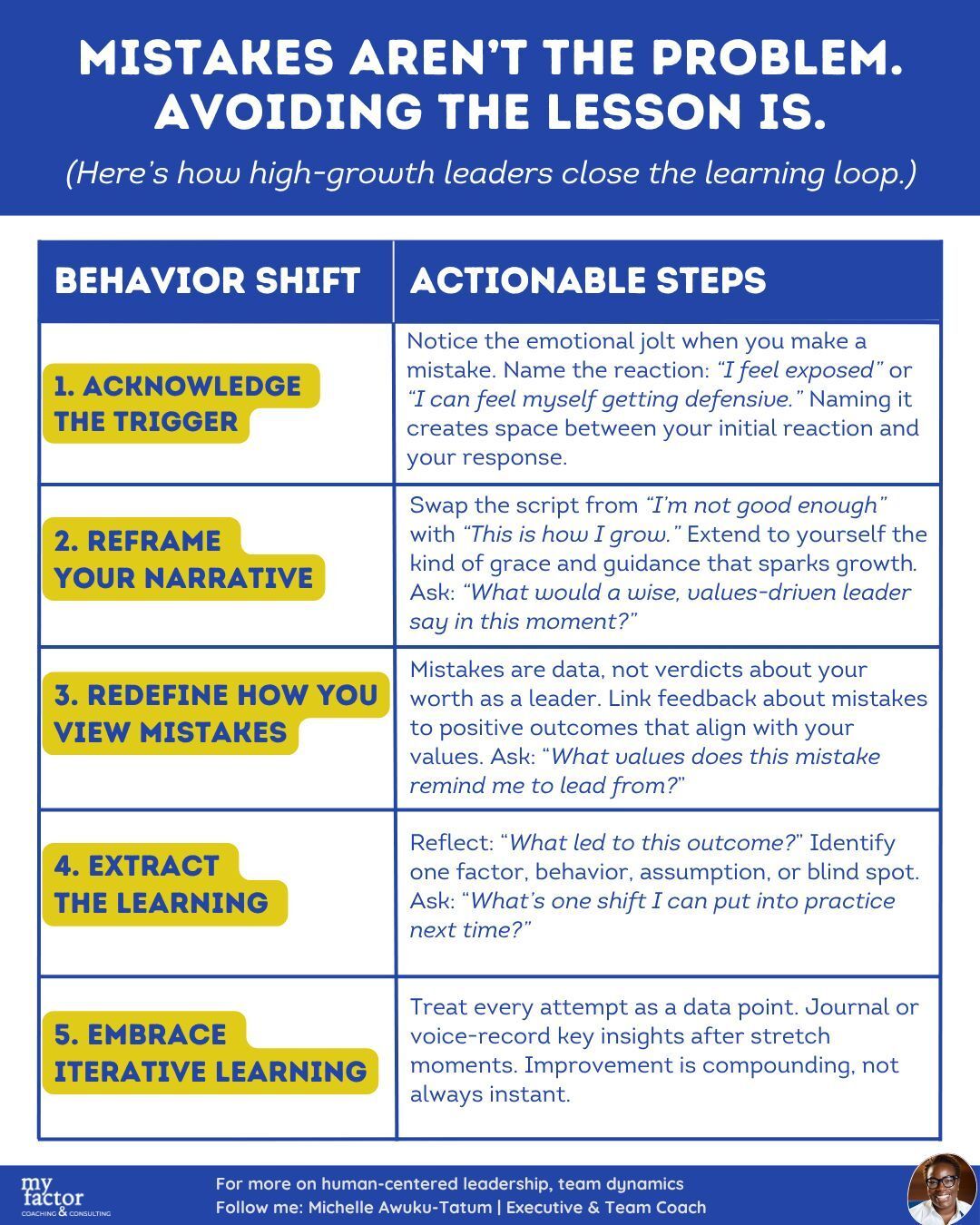We're now halfway through the year, a natural inflection point for leadership.
Summer's slower pace creates something rare: actual space to think. Without the usual cascade of meetings and urgent requests, you may be able to step back and ask the deeper questions about your leadership impact. What if you used this quieter season to build the self-awareness and intentional practices that will carry you and your team through a stronger second half?
Most leadership crises start quietly:
in the team member who stops contributing ideas,
in project updates that sound positive but keep missing deadlines,
or in the energy shift you sense but can't quite explain.
Trust erodes one missed commitment at a time. A weekly check-in helps you catch those patterns before they turn into problems.
These weekly check-ins aren't just a reflection. They're preparation for the leadership challenges ahead.

Leaders who regularly assess their follow-through, emotional tone, and stress habits build sharper awareness and stronger control. That leads to better decisions, deeper trust, and lower turnover.
Here's how to do it.
1. Audit Your Follow-Through
Ask yourself:
What did you promise this week?
What did you actually deliver?
Where did you say "I'll get back to you" and didn't?
Your integrity as a leader lives in these small moments of follow-through. When you consistently deliver on minor commitments, your team trusts you with major decisions.
2. Check Your Emotional Impact
Your state becomes your team's climate.
Pause before high-stakes conversations.
Ask: What's my intent? How might this be received?
This helps you to lead with intention, not reaction.
3. Listen Beyond What's Said
Most insight lives beneath the surface. Listen on three levels:
Surface: What's being said?
Energy: What shifts when certain topics come up?
Unspoken: What's being avoided, minimized, or left unsaid?
The more attuned you are, the more trust you build.
4. Notice What Matters to Your Team
Reflection:
How clearly do you see your team?
Who naturally contributes versus who needs encouragement to contribute?
Are quieter voices getting space to think and respond?
Inclusive leadership means actively creating space, not just avoiding exclusion
5. Assess Your Leadership Shadow
What patterns and behaviors emerge under stress?
Are you avoiding uncomfortable conversations, micromanaging, or overcompensating to prove your worth?
Your answers to these questions reveal your shadow patterns. When you catch them in real-time, you can pause and choose a different response.
6. Model Resilience During Setbacks
Ask yourself:
When something didn't go as planned this week, how did I respond?
What did my team learn about handling difficulties by watching me?
Your resilience in tough moments teaches your team how to handle their challenges. Model accountability and forward momentum, not blame or dwelling.
7. Create a Two-Way Feedback Loop
Actively create safety for hard truths:
For your team: What's one thing that's working well, and one thing that could be better?
For yourself: What leadership pattern showed up this week that you want to keep? What pattern showed up that you want to shift?
Your goal isn't comfort. It's inviting honest feedback that helps you lead better.
How to Make This Practice a Habit
✅ Make Trust Predictable
Consistency isn't just about repetition, it's about reliability. A steady weekly check-in builds safety because your team knows when and how you'll show up.
✅ Align Early and Often
Use these check-ins to clarify expectations, align on priorities, and define what success looks like for the week or month ahead, before assumptions take over.
✅ Close the Loop
Feedback without follow-through erodes trust. When someone shares input, revisit the conversation.
✅ Keep it Human
Acknowledge wins and express gratitude. Check in on well-being and performance. Let people know their presence matters as much as their contributions.
Small Actions, Big Shifts
When you reflect consistently, your team stops reacting and starts anticipating.
Trust deepens. Communication sharpens.
You become a leader people choose to follow, not because they have to, but because they feel seen, supported and safe.
Reflection gets easier when you have a structure.
That's why I put together a simple tool to guide your weekly leadership reset.
It's called the 7-Step Weekly Leadership Check-In and it's free to download.
You can print it, fill it out digitally, or even use it as a Friday team practice.
👉🏾 [Grab the download here] and try it this week. See what surfaces.
P.S. If you try one of these reflections this week, I'd love to hear what surfaced. Reply and let me know.
The Art of Human-Centered Leadership: Coaching Notes
Every weekday, I share insights on human-centered leadership, team dynamics, and workplace culture on LinkedIn. Here are 3 posts from the past month that capture these themes:
Thank you for reading!
Know that I am here for you and your leadership journey.
With love and support, Michelle
P.S. Whether you're looking to elevate your own leadership impact or develop stronger leaders across your organization, let's explore how executive coaching and leadership development can create the culture change you're seeking.
myfactor guides Fortune 500s, non-profits, and founder-led ventures through critical leadership challenges. We develop human-centered leaders who build trust through meaningful connections - the foundation of high-performing teams and thriving culture.



